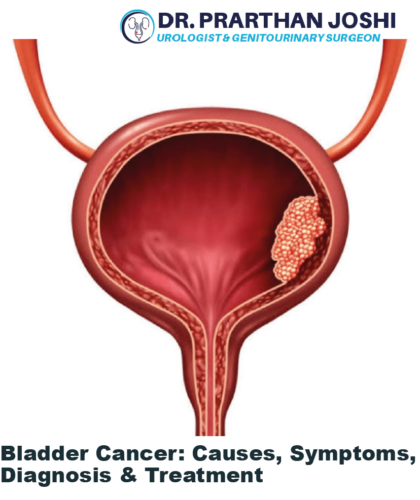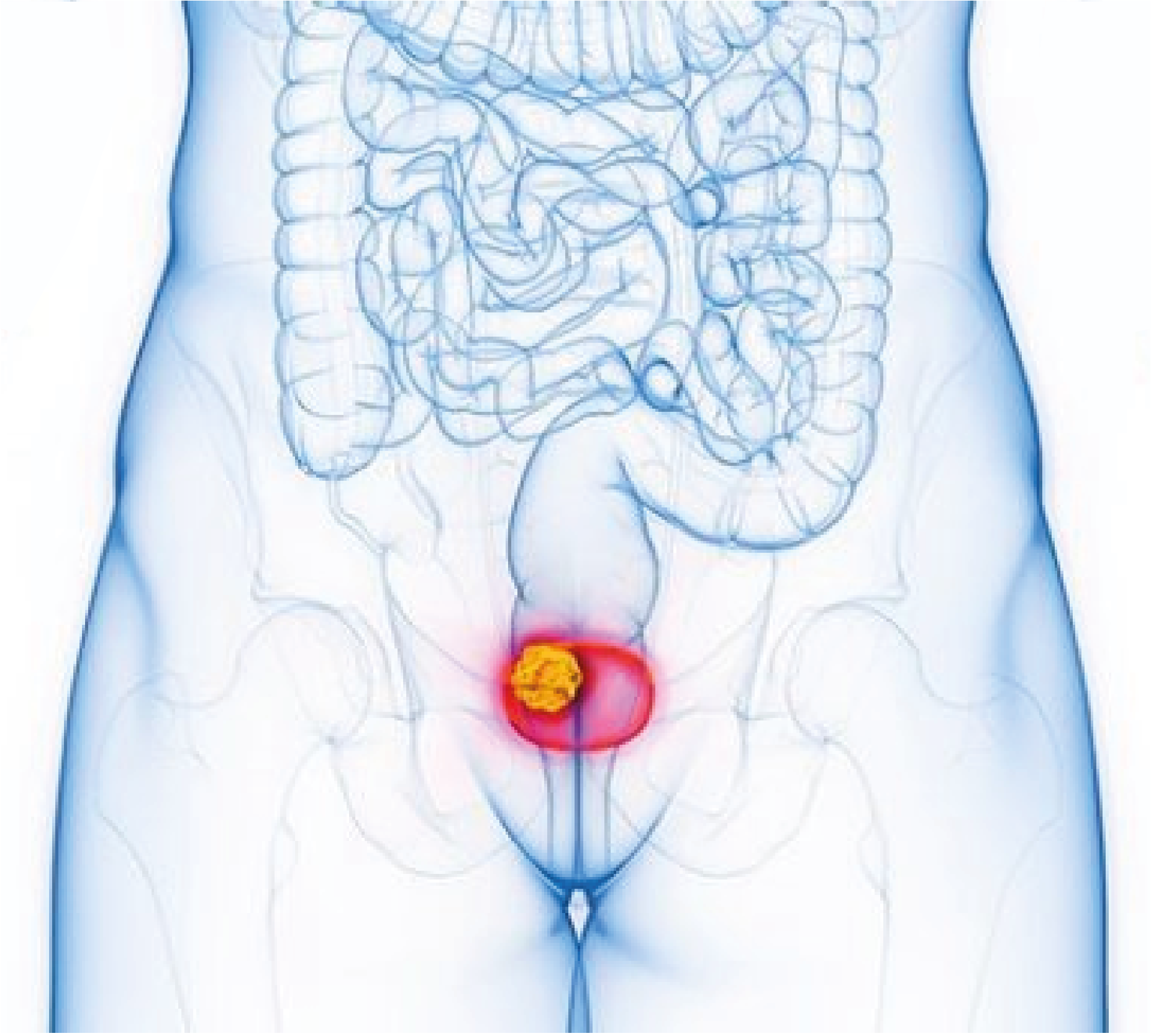Bladder cancer is one of the most common types of cancer that affects the urinary system. It originates in the cells lining the bladder, which stores urine before it is expelled from the body. Though bladder cancer can affect both male and female, it is most commonly diagnosed in older adults, particularly men. The key to successfully treating bladder cancer is early detection, accurate diagnosis and a personalized treatment plan.
If you’re seeking Bladder Cancer Treatment in Ahmedabad, Dr. Prarthan Joshi, a senior urologist, genitourinary surgeon and kidney transplant specialist at Zydus Hospitals, Ahmedabad is the right choice for you. He offers expert care and advanced treatment options for bladder cancer patients. With his extensive experience and state-of-the-art facilities, Dr. Joshi ensures that patients receive the most effective and appropriate treatment for their condition.
Bladder cancer occurs when abnormal cells grow in the lining of the bladder; forming a tumour. There are several types of bladder cancers; with Urothelial Carcinoma (transitional cell carcinoma) being the most common of theme. Other, less common forms include Squamous Cell Carcinoma and Adenocarcinoma.
Bladder cancer typically starts in the urothelial cells and may spread to the bladder wall, nearby lymph nodes or distant organs if not diagnosed early and left untreated. Early diagnosis is critical to successful bladder cancer treatment and outcomes. Dr. Prarthan Joshi, as a leading Bladder Cancer Doctor in Ahmedabad, provides comprehensive care using the latest diagnostic techniques and treatment protocols to offer the best possible outcome for his patients.


Dr. Prarthan Joshi evaluates these risk factors in detail during consultations to provide tailored prevention advice and early diagnostic testing.
If you notice any of these symptoms, it is important to consult with your doctor for early diagnosis and appropriate treatment.
There are several advanced techniques to diagnose bladder cancer accurately. Some of the primary methods used in diagnosing bladder cancer include:
With these diagnostic tools comprehensive evaluation is done to ensure accurate staging and diagnosis of bladder cancer.
Cystectomy: In more advanced cases of bladder cancer, where cancer has spread deeper into the bladder wall, a partial or radical cystectomy may be necessary. A partial cystectomy involves the removal of part of the bladder; while a radical cystectomy involves the removal of the entire bladder. In some cases, nearby lymph nodes may also be removed. Dr. Joshi is highly skilled in performing these delicate surgeries with precision and minimal complications.
Regular cystoscopies to check for tumour recurrence.
This is mainly to monitor overall health and detect any new developments.
Undergoing bladder cancer treatment can be emotionally challenging. Dr. Joshi and the team at Zydus Hospitals offer psychological support and counselling services to help patients cope with the emotional impact of treatment.
Certain change will definitely change in positive way to improve post recovery lifecycle like change in diet, active lifestyle and regular exercise and psychological support.
The most common early signs include blood in the urine (hematuria), painful urination and frequent urination.
Treatment options include surgery, chemotherapy, immunotherapy and radiation therapy. The most appropriate treatment is often based on the type and stage of cancer.
The success rate of bladder cancer treatment is high, especially when detected early. Advanced techniques are used to ensure optimal outcomes for patients.
With personalized care and tailored treatment helps minimize the side effects and improves quality of life during and after treatment.



